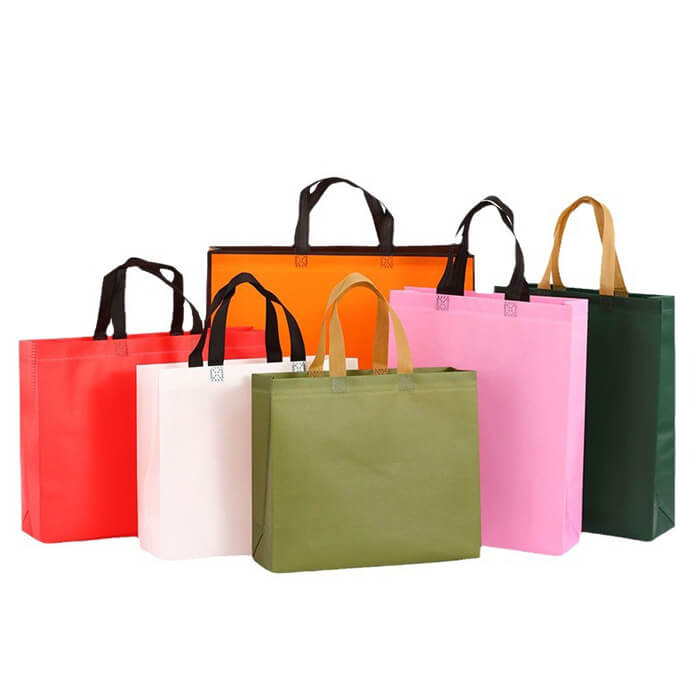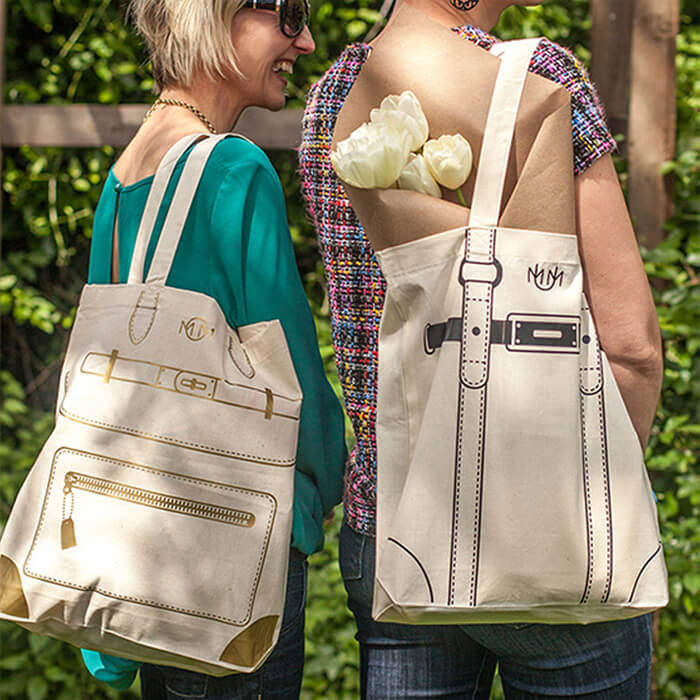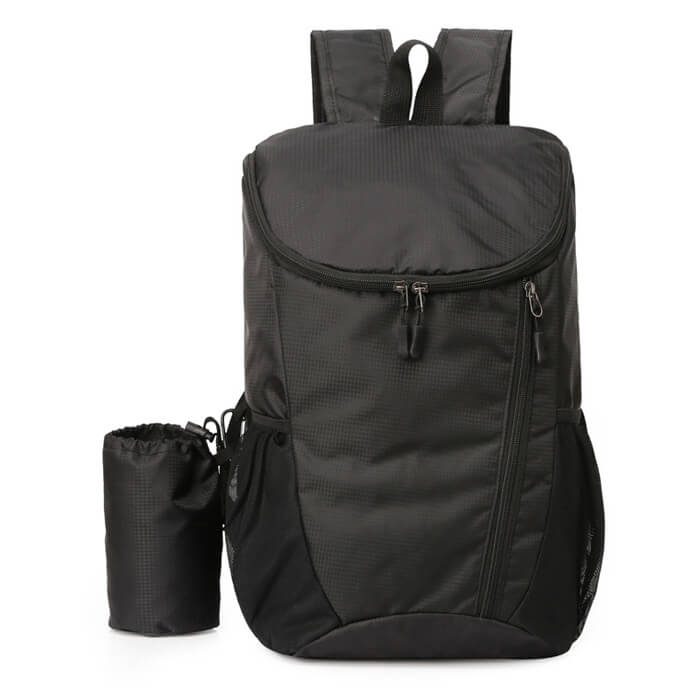
Plastic, paper, or reusable bag?
That is the question we all have to answer every time we go shopping for groceries.
While you might quickly choose the third option as the most environmentally friendly, you’ll be surprised to know that the answer is not as straightforward as it sounds.
Why?
Because making reusable bags is more resource-intensive than making conventional plastic bags.
But that answer is far from comprehensive, it's just the tip of the iceberg.
So, to help you truly understand why you should choose shopping bags reusable for long term, I’ll start you off with a brief on which shopping bags are more environmentally friendly.
Then I’ll give you 5 additional reasons you should opt for reusable grocery bags.
Let’s set the ball rolling.
Plastic Vs. Paper Vs. Reusable Bag: Which is More Environmentally Friendly?

The decision to replace plastic grocery bags with reusable bags adopted by many governments and individual citizens is based on the presumption that reusable bags are more environmentally friendly.
While that is true, it is only totally true if you consider all the factors that determine if one product is more environmentally friendly than another.
These factors are used in product life cycle assessment to know how they impact the environment through carbon emissions.
And that’s where the plastic vs reusable bag discourse gets complicated.
How?
Let me explain.
Although plastic bags have won a bad name for themselves, they have the least carbon footprint.
But that’s only true if we factor in their production. In that perspective, the carbon footprint of reusable grocery bags is at least 13.7 times more than that of conventional plastic bags.
Paper bags sit somewhere in the middle.
All this means that, compared to plastic bags, a reusable bag creates more emissions in the first stages of its life cycle, including raw material production and manufacturing.
But plastic bags are worse than reusable bags in carbon emission in the last stages of their lifecycle (use by consumers and end of life [disposal and decomposition]).
Now, greenhouse gases are what threaten our environment.
They are responsible for the current aggressive rise in global temperatures.
And that’s why choosing the bag with the least carbon footprint is important.
So, let’s cut to the chase.
If we only consider raw material production and manufacturing, plastic bags have the least carbon footprint.
Instead, reusable bags like those made with cotton are resource-intensive in both raw material production and manufacturing.
So, which option is more environmentally friendly?
Studies have revealed that the number of times we reuse a bag is what increases its environmental friendliness.
In that light, a widely quoted study by the UK Environmental Agency found that we have to reuse cotton bags 131 times to reduce their impact on the climate in a comparable way to plastic bags.
Similarly, we would need to reuse paper bags 3 times to have the same impact.
Similarly, a 2018 Danish Environmental Protection Agency study revealed that we need to reuse conventional cotton bags 7,100 to reduce their carbon footprint to the same level as conventional plastic bags.
An organic cotton bag would have to be reused 20,000 times.
So, here’s where the plastic bag loses, and the reusable grocery bag wins.

Generally, people reuse plastic bags once to line wastebaskets, dispose of dog poop, and pack and store food, among other uses.
What’s worse, they contribute heavily to landfill waste and extensively pollute our environment, including our water sources, putting marine life in danger.
Besides, microplastics are all over the place! You could even be consuming the toxins in food and breathing them in the air.
Instead, reusable grocery bags, especially those made from natural materials like cotton, jute, hemp, bamboo, and other options like canvas are reusable as long as you want to reuse them.
And when their life cycle is complete, they decompose faster than plastic bags and their woven polypropylene version.
And that does it for reusable grocery bags!
Bags made of natural material have better chances of lowering their carbon footprint through endless reuses.
Besides, they won’t pollute the environment for thousands of years once discarded.
From all this, we can draw specific reasons why you should choose shopping bags reusable for long term.
Why You Should Choose Reusable Grocery Bags

What we said so far should already convince you that choosing reusable grocery bags is better than using plastic bags.
But we’ll break it down further for you and include the benefits of reusable shopping bags not directly related to environmental conservation.
So, here are 5 reasons why you should choose reusable bags over plastic or paper bags.
To Reduce Plastic Pollution
The latest data by the FDA shows that, of the 2.4 million tons of plastic bags produced in the US, over 3 million ended up at the landfill, while only 10% was recycled.
As mentioned earlier, this plastic waste pollutes our environment by contaminating land, water bodies, and even the air we breathe.
When you use and reuse reusable grocery bags, you reduce the need to produce more plastic bags at least by the number you save.
And that contributes to reducing pollution from plastic.
To Conserve Non-renewable Resources
About 8% of the global oil is used to make plastic. In the US, approximately 12 million barrels go into manufacturing plastic bags annually.
While experts say we are at no risk of depleting our fossil fuel resources any time soon, extracting fossil fuels uses up other resources and contributes significantly to environmental degradation.
Reusing reusable bags can help conserve fossil fuels and reduce the negative impact posed on the environment by fossil fuel extraction.
To Save on Costs
Grocery shops in some US states now charge at least 5 cents (a nickel) per plastic grocery bag.
If we consider that the average American uses around 365 bags each year, that adds up to $18.25 a year.
If we still factor in the 3.13 average size of the American family, that counts to around $57 each year.
Compared to the reusable grocery bag with a $1-$3 cost range, you only pay that amount for all the years you reuse the bag.
Should the reusable bag last 5 years, the average family will have saved $282 in plastic bags if the reusable bag costs $3.
Better Shopping Experience
Many of us have experienced a disappointing situation where the handles of plastic grocery bags break even before we leave the grocery shop.
Also, both plastic and paper bags tear easily when heavy or sharp products are pressed onto them.
That is not the case with canvas, cotton, hemp, bamboo, or jute reusable bags. In fact, even reusable non-woven polypropylene bags are relatively stronger than plastic and paper bags.
You have to replace broken plastic or paper bags, causing more of them to be produced and discarded as waste later.
Instead, reusable bags will give you a better shopping experience.
That’s because they are stronger, hold more stuff, and are unlikely to tear or break from the weight of your shopping.
Protect Wildlife
By opting for reusable bags and reducing your use of plastic bags, you contribute significantly to protecting and saving our wildlife.
According to UNESCO’s data on ocean plastic pollution, 80% of marine pollution is caused by the 8-10 million metric tons of plastic waste that ends up in the ocean each year.
This waste harms millions of marine animals by entanglement, suffocation, laceration, infections, and internal injuries when ingested.
By replacing plastic bags with shopping bags reusable for the long term, you reduce the plastic waste that ends up in the ocean and other water bodies.
Concluding Thoughts

Shopping plastic bags are cheap and readily available. But that doesn’t make them the perfect grocery bags.
Similarly, reusable bags save us plenty of extra plastic shopping bags, but they consume extra production and manufacturing resources.
Nonetheless, because plastic bags cause more harm to our environment due to their slow decomposition and limited reuse, shopping bags reusable for the long term are the best options anyone who cares about the environment should opt for.
At Vivipins, we believe in environmentally friendly options when producing and packaging our products.
What about you? What’s your experience with reusable shopping bags? We love to hear it in the comments section.
References
-
The Yale Ledger. Why Everyone Should Use Reusable Shopping Bags. https://campuspress.yale.edu/ledger/why-everyone-should-use-reusable-shopping-bags/
-
totebag. 8 Reasons You Should Use Reusable Grocery Bags. https://totebagfactory.com/blogs/news/8-reasons-you-should-use-reusable-grocery-bags
-
National Geographic. Sustainable Shopping—Which Bag Is Best? https://education.nationalgeographic.org/resource/sustainable-shoppingwhich-bag-best/
-
UK Environmental Agency. Life cycle assessment of supermarket carrier bags: a review of the bags available in 2006. https://assets.publishing.service.gov.uk/media/5a7bff74ed915d01ba1ca7c7/scho0711buan-e-e.pdf
-
Canadian Business. Are Reusable Grocery Bags Any Better for the Planet Than Single-Use Ones? https://canadianbusiness.com/design/reusable-grocery-bag-single-use-plastic-bag-ban-canada/
-
The Danish Environmental Protection Agency. Life Cycle Assessment of grocery carrier bags. https://www2.mst.dk/udgiv/publications/2018/02/978-87-93614-73-4.pdf
-
Center for Sustainable Systems. Carbon Footprint Factsheet. https://css.umich.edu/publications/factsheets/sustainability-indicators/carbon-footprint-factsheet
-
UNEP. Microplastics: The long legacy left behind by plastic pollution. https://www.unep.org/news-and-stories/story/microplastics-long-legacy-left-behind-plastic-pollution
-
National Library of Medicine. Running out? Rethinking resource depletion. https://www.ncbi.nlm.nih.gov/pmc/articles/PMC7341033/
-
EPA. Frequent Questions regarding EPA’s Facts and Figures about Materials, Waste and Recycling. https://www.epa.gov/facts-and-figures-about-materials-waste-and-recycling/frequent-questions-regarding-epas-facts-and
-
Center for Biological Diversity. 10 Facts About Single-use Plastic Bags. https://www.biologicaldiversity.org/programs/population_and_sustainability/sustainability/plastic_bag_facts.html
-
Statista. Average family size in the U.S. 1960-2022. https://www.statista.com/statistics/183657/average-size-of-a-family-in-the-us/
-
UNESCO. Ocean plastic pollution an overview: data and statistics. https://oceanliteracy.unesco.org/plastic-pollution-ocean/
Awesome! Share To :
Receive our news



